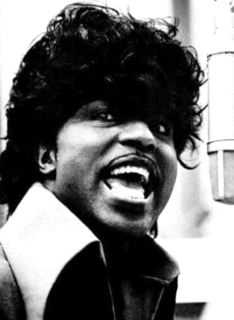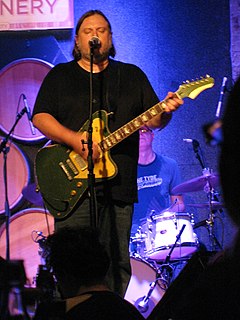A Quote by Jason Pierce
You know, I'm unable to make those records where you just go in a studio and that's it. I think you can capture so much more on a record than just a particular performance on one day.
Related Quotes
I call it "being interrupted by success." We had done The Soft Bulletin, which came out in 1999, and we knew we that were gonna make another record before too long. But in between this, we were still in this mode of kind of just - not re-creating what we could be, but kind of doing different things. For the longest time in the Flaming Lips we were like, "Make a record, go on tour. Come back, make another record," and you know, I think, frankly, we were kind of like, "There's more to life than just recording records and going on tour."
There's a lot of discussion about whether you should be a good live band or a good studio band. I think you can use the studio to make a great "studio record" and not necessarily have to reproduce exactly that on stage, but still be a great "live band." Having said that, if what you're going for is just the raw capture of your live sound, then that's cool, too - go for it! I enjoy working in the studio, though, and while I try to get near to an approximation of what's going on onstage, it's not my first priority usually.
I think there's just an inherent burden of being alive and being a woman. No man would ever admit that, but I think women know it, which is: You know more than men, you know more than most people you're dealing with every day, and you know that's it up to you to make things move forward, and you get paid half as much, but you just do it.
I think it's critically important for people to understand that this system of mass incarceration governs not just those who find themselves in prison on any given day, but also all those who are in jail, on probation or parole, as well as all those who are just months away from being locked up again because they are unable to find work or housing due to their criminal record.
I think it's stripped down as far as electronics go, but we just wanted to write a record that we felt better represented how we sound live with more of a rock feel, which is the direction we've been heading. It's just an evolution of the band throughout the years. We worked on this record longer than any other record, so I don't know if "stripped down" is how I would put it; I think it is a little bit more raw sounding.
You know, punk bands now sell with one record - their first or second record - sell 10 times the amount of records than the Ramones did throughout their career with 20-something records. That's why I go over to Johnny Ramone's house and do yard work three times a week, just to absolve some of the guilt.
You just do the best you can. It doesn't necessarily mean that you have to get worse the more you do it. It can get better, I think... aspects of it, anyway. I mean, I don't write as much as I used to. But I don't do a lot of things as much as I used to. So that's the natural order of things, too. You're more or less living in the present. You're just trying to get that next song, whatever it is. And not think too much about what happened on the last record, or the record you made 20 years ago, because those are over with. Those are done.
My father gave me one of those small, box-sized travel players when I was a kid and just a handful of records that he had. 'Zeppelin IV' was one. 'The Beatles at the Hollywood Bowl,' which is just about the worst record ever - you can't hear anything, just screaming in the background. I think there was maybe, like, an Animals record.
I think I understand what bands want, just from having made records myself. I understand what it takes to get a good vocal sound, or to make people comfortable in the studio. From minor things like their headphone mix - and if a singer's singing, how they should hear themselves - to how to make people feel that they're getting exactly what they want. All those things, I think, are an advantage, especially the part about having done it myself. I'm not just an engineer who records the sounds well. I'm not afraid to take chances.




































